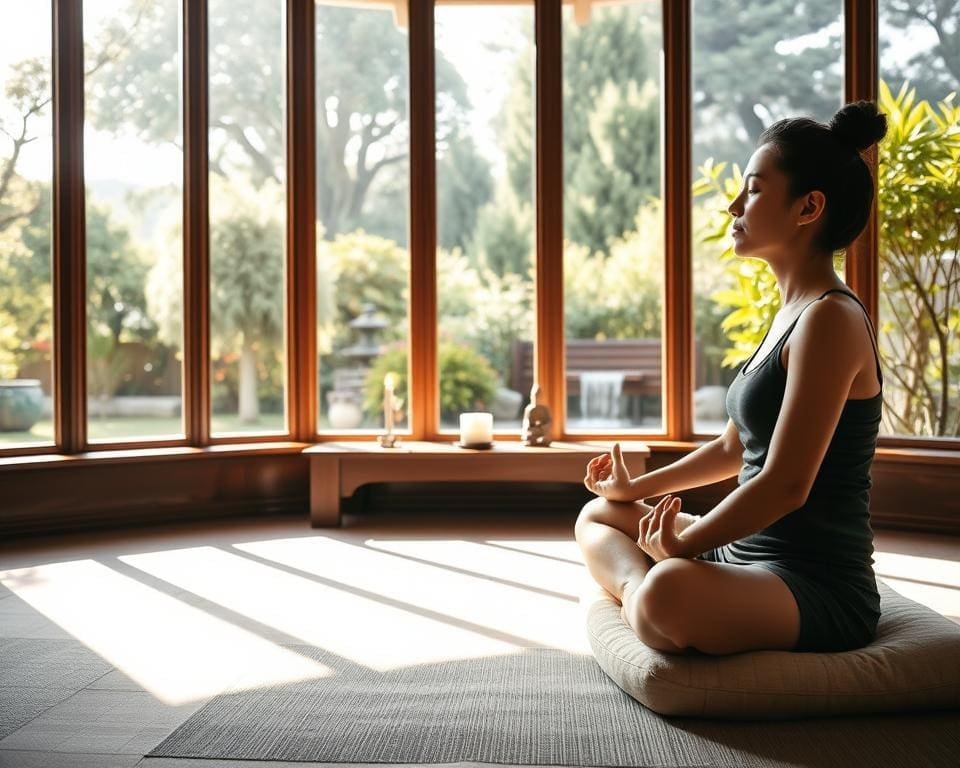In an increasingly fast-paced world, many are turning to mindfulness as a pathway to enhance their mental wellbeing. The transformative power of mindfulness is not just a modern trend; it’s deeply rooted in ancient practices that have shown remarkable efficacy in reshaping our perceptions of life. Could a mindful routine change your outlook? Research reveals that consistent mindfulness practice can lead to significant shifts in brain function, fostering improved emotional regulation and resilience. Studies from prestigious institutions, including Harvard University, indicate that regular engagement in mindfulness can alter the brain’s structure, paving the way for such changes. By integrating simple yet powerful mindful habits into our daily routines, we can embark on a journey toward profound personal transformation.
The Essence of Mindfulness
Mindfulness represents a profound approach to life, fundamentally rooted in the practice of being present and fully engaged with the moment. This practice invites individuals to observe their thoughts, feelings, and bodily sensations without judgement, creating an avenue for personal growth and emotional clarity. With its rich history, mindfulness is not merely a trend but a timeless practice that continues to evolve.
Understanding Mindfulness Practice
A mindfulness practice incorporates various techniques designed to cultivate awareness and presence. Common methods include meditation, breathing exercises, and mindful movements. Through regular engagement, practitioners develop skills that enhance their ability to respond to life’s challenges with greater equanimity. The essence of mindfulness lies in its capacity to foster acceptance and appreciation of the present, aiding in stress reduction and promoting inner peace.
The Origins of Mindfulness
The origins of mindfulness can primarily be traced back to ancient Buddhist teachings. These practices were meticulously crafted to teach individuals the art of living fully in each moment. In the late 20th century, mindfulness gained traction in the West through the pioneering work of Jon Kabat-Zinn, who popularised its principles in the context of health and wellness. His establishment of Mindfulness-Based Stress Reduction (MBSR) has significantly influenced how mindfulness is perceived and integrated into modern life.
How Mindfulness Influences Daily Life
The daily mindfulness influence extends beyond formal practice, permeating various aspects of everyday life. Mindfulness can transform mundane tasks such as eating, walking, or even conversing into enriching experiences. As individuals incorporate mindfulness into their routines, they often report decreased anxiety and improved emotional regulation. This shift not only enhances overall mood but also empowers individuals to approach challenges with a fresh perspective.

Could a mindful routine change your outlook?
Adopting a mindful routine can significantly enhance your mental wellbeing impact in numerous ways. Research shows that regular mindfulness practice has the potential to diminish feelings of anxiety and depression, while simultaneously boosting overall life satisfaction. The transformative power of these practices is evidenced by personal stories from individuals across various professions.
The Impact of Mindfulness on Mental Wellbeing
Many professionals in high-stress environments report a dramatic shift in their workplace experience. Integrating mindfulness into their daily schedules allows them to manage their stress levels effectively. Those who were once overwhelmed by urgent deadlines now enjoy a renewed sense of focus. The mental wellbeing impact of these changes leads to improved productivity and job satisfaction. Such benefits illustrate how a mindful routine can truly change outlook, bringing clarity and peace to busy lives.
Personal Stories of Transformation
Individuals share compelling narratives of how mindfulness has reshaped their perspectives. One individual, who once struggled with constant anxiety, embraced mindfulness as a daily practice. Through consistent meditation and deep-breathing exercises, they found relief from intrusive thoughts, enabling them to thrive personally and professionally. Another story involves a teacher who experienced burnout before adopting a mindful routine. This change led to increased patience and compassion, positively affecting both their teaching approach and relationships with students. Such testimonials highlight the profound potential of mindfulness to effect lasting change.
Building a Mindful Routine
Establishing a mindful routine forms the foundation for incorporating mindfulness into daily life. Such a routine helps individuals develop a consistent practice that nurtures mental wellbeing. Understanding key elements leads to effective daily mindfulness practices and contributes to a sustainable routine.
Key Elements of an Effective Mindfulness Routine
To create an effective mindful routine, consider the following essential elements:
- Designate specific times for mindfulness activities, such as early morning meditation or evening deep breathing.
- Incorporate various practices like yoga, mindful walking, or loving-kindness meditation.
- Create a calming environment that encourages relaxation and focus.
Daily Incorporation of Mindful Practices
Integrating mindfulness into daily activities enriches the overall experience. You might find opportunities during mundane tasks, such as:
- Practising mindful eating by appreciating each bite.
- Finding awareness in chores, like washing dishes, to cultivate presence.
- Using your commute as a time for deep breathing or listening to mindfulness podcasts.
Tips for Creating a Sustainable Routine
Ensuring consistency in a mindful routine is vital for lasting benefits. Consider these tips to maintain commitment:
- Start with short sessions, gradually increasing duration as comfort grows.
- Utilise apps like Headspace or Calm for guided exercises and reminders.
- Join a local mindfulness group or online community for support and motivation.
The Benefits of a Positive Mindset
A positive mindset plays a crucial role in shaping our life choices and overall wellbeing. When individuals embrace positivity, they often find themselves better equipped to tackle obstacles and maintain perseverance in the face of challenges. The synergy between mindfulness and positivity fosters an environment where optimism can thrive.
How a Positive Mindset Affects Life Choices
A positive mindset impacts personal and professional life choices significantly. When individuals approach situations with a constructive outlook, they are more likely to make decisions that favour growth and happiness. Research suggests that those who nurture positivity often experience improved relationships, heightened productivity, and greater satisfaction in daily pursuits. People frequently engage in activities aligned with their values and passions, leading to fulfilling outcomes.
The Connection Between Mindfulness and Positivity
Mindfulness plays an essential role in cultivating a positive mindset. By practising mindfulness and positivity, individuals can develop an awareness of their thoughts and feelings. This awareness allows for greater emotional regulation and resilience. As individuals become more mindful, they typically begin to notice and appreciate the small joys in life, reinforcing a positive attitude. Engaging in mindful practices cultivates gratitude and encourages a deeper connection to both oneself and the world.
Self-Care Habits Within a Mindful Routine
Incorporating self-care habits into a mindful routine significantly elevates the overall experience of everyday self-care. Engaging in activities that nurture one’s well-being can lead to mindfulness enhancement, fostering a deeper connection with oneself. By establishing and maintaining self-care practices, individuals can create a nurturing environment that promotes emotional and mental balance.
Self-Care Practices to Enhance Mindfulness
Integrating specific self-care practices into a mindfulness routine enriches the journey toward self-discovery. Consider activities such as:
- Journaling to reflect on thoughts and feelings, allowing for introspection and clarity.
- Spending time on hobbies that ignite passion and joy, facilitating a break from daily stressors.
- Practising gratitude, which nurtures a positive mindset and reinforces appreciation for life’s simple pleasures.
Integrating Self-Care into Everyday Life
Making self-care a priority requires intentionality. Set aside dedicated time each day for activities that replenish mental and emotional energy. Simple actions such as enjoying a quiet cup of tea, taking a mindful walk, or engaging in breathing exercises can be seamlessly woven into a daily schedule. Embracing these self-care habits not only supports mindfulness enhancement but also creates a consistent framework where one can thrive. Remember, prioritising self-care is not a luxury, but a fundamental necessity for a fulfilling life.
The Science Behind Mindfulness and Outlook Change
The science of mindfulness has gained substantial traction in recent years, revealing compelling evidence of its transformative effect on mental health and outlook change. Groundbreaking research indicates that engaging in mindfulness practices can significantly alter the brain’s neural pathways, fostering emotional resilience and enhancing wellbeing. Studies conducted by credible institutions, including the American Psychological Association, illustrate that mindfulness not only reduces stress but also reshapes the brain’s response mechanisms, leading to a more balanced emotional state.
One notable finding highlights that individuals who regularly practise mindfulness exhibit a marked decrease in activity within the amygdala, the brain region associated with stress responses. This physiological shift is accompanied by increased connectivity in areas of the brain linked to emotional regulation, underscoring the psychological impact of mindfulness. By shifting one’s perspective through these practices, one can cultivate a more optimistic and resilient outlook on life.









